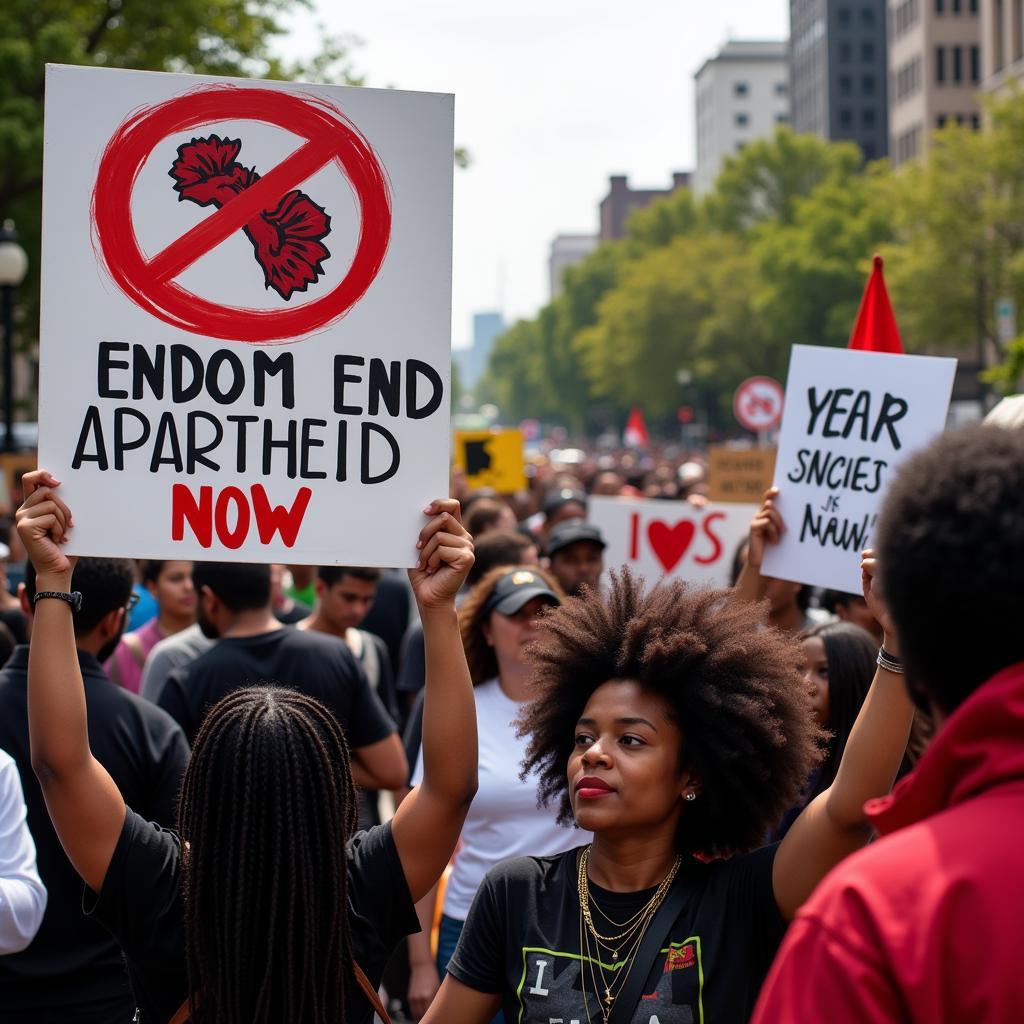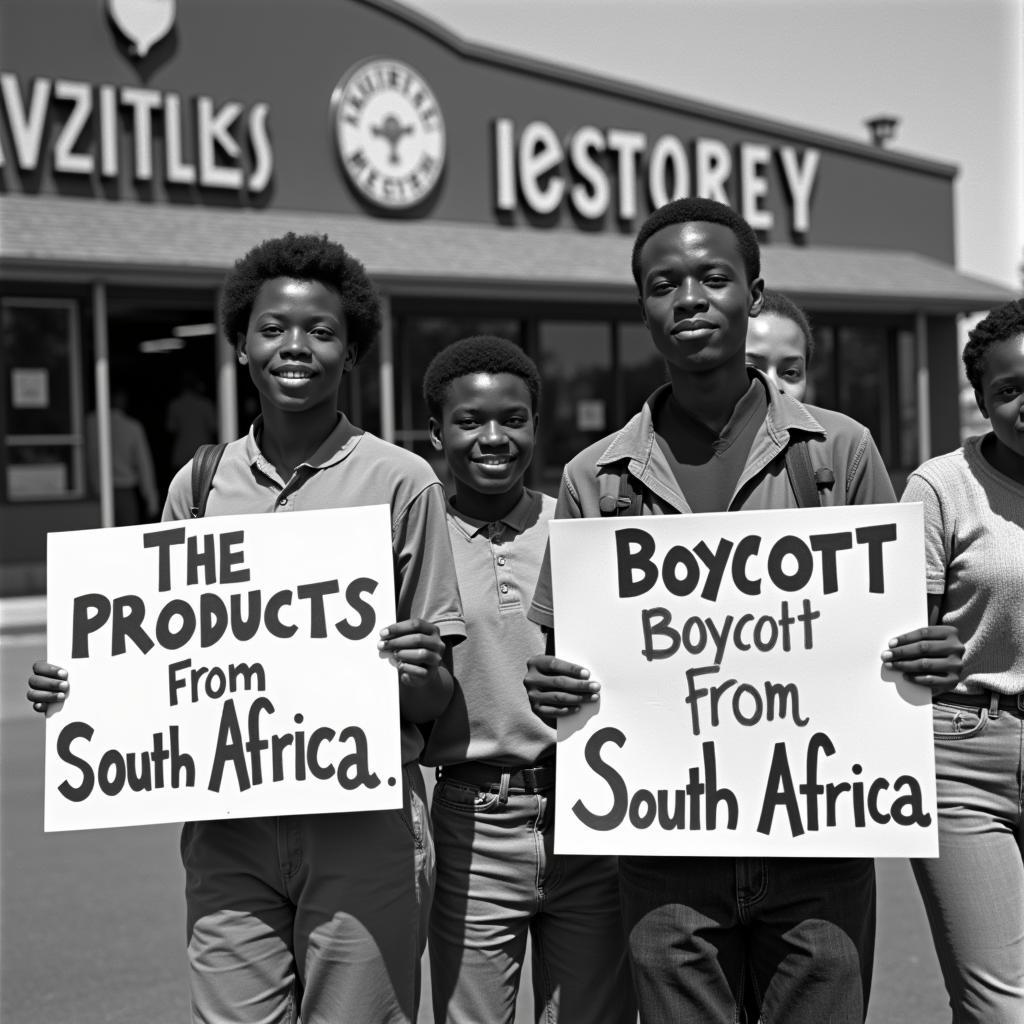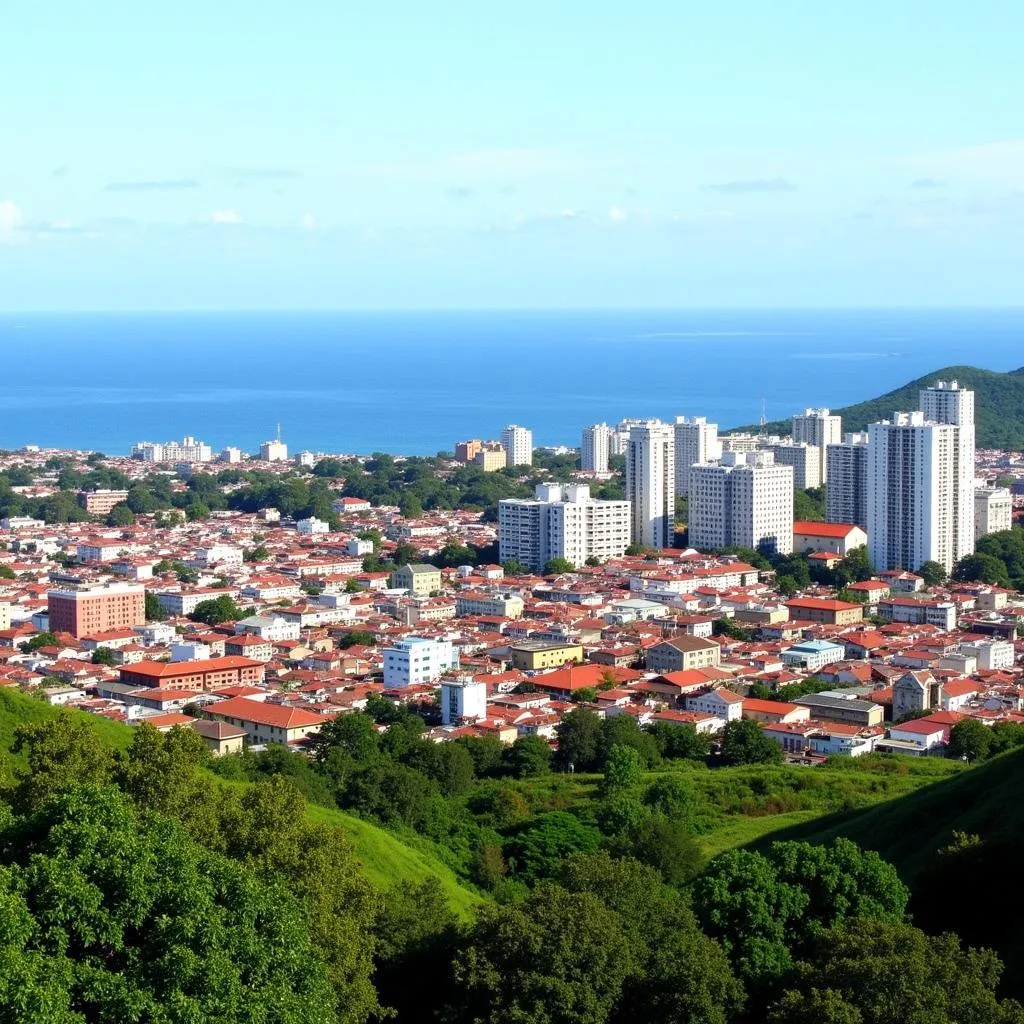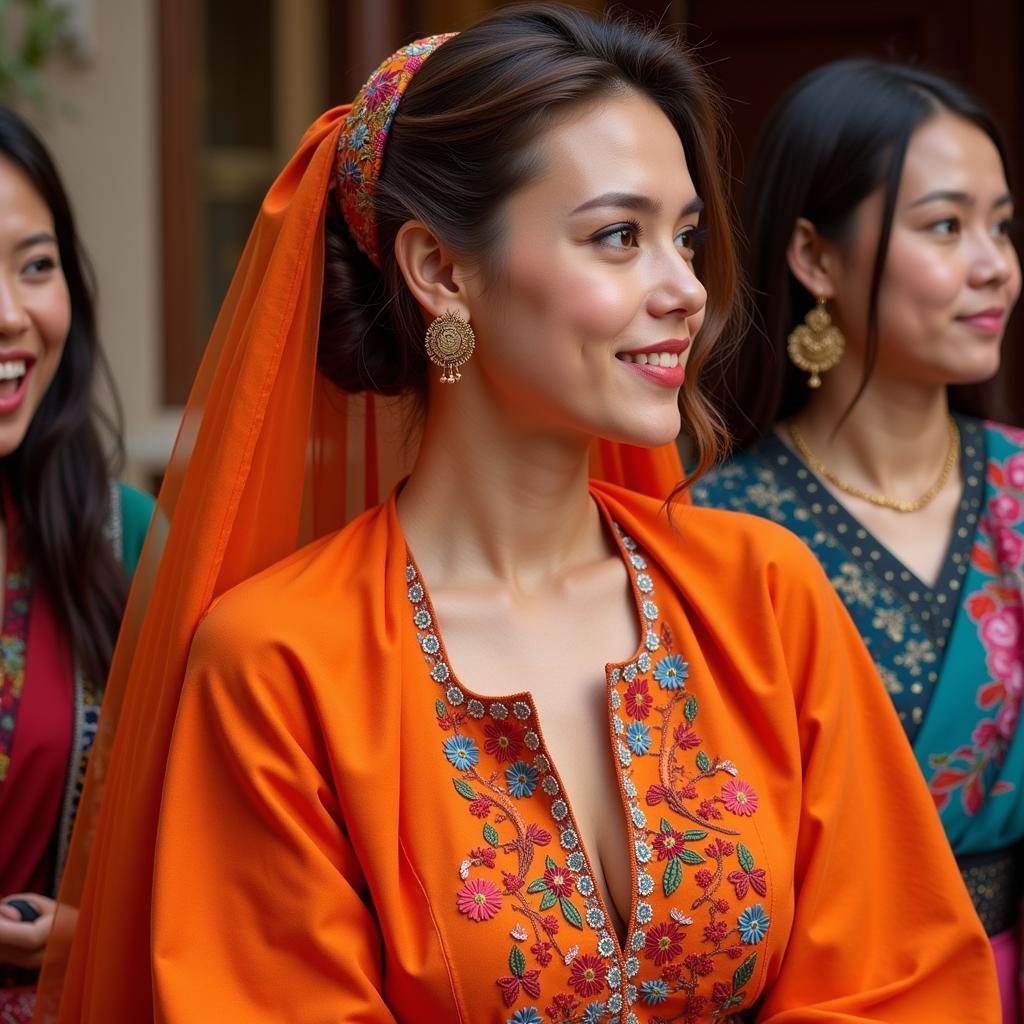African Americans During Apartheid: A Shared Struggle for Freedom
The history of African Americans during apartheid in South Africa, while geographically distant, is marked by a shared struggle against racial injustice and a powerful demonstration of solidarity. This connection highlights the global impact of racism and the resilience of marginalized communities fighting for equality.
A Shared History of Oppression
Though separated by an ocean, Black Americans and Black South Africans faced remarkably similar systems of oppression. Jim Crow in the US and apartheid in South Africa were built on white supremacy, aiming to segregate and subjugate people of color. This shared experience created a strong foundation for empathy and understanding, fueling the fight against apartheid even from across the globe.
 African Americans protesting against apartheid
African Americans protesting against apartheid
Raising Awareness and Mobilizing Support
African Americans played a crucial role in raising global awareness about the injustices of apartheid. Civil rights leaders like Dr. Martin Luther King Jr., Malcolm X, and Angela Davis recognized the parallels between their own struggles and those of Black South Africans. They used their platforms to condemn apartheid, drawing international attention to the issue and galvanizing support for the anti-apartheid movement.
Economic Sanctions: A Powerful Weapon
Beyond raising awareness, African Americans actively participated in economic sanctions against the South African government. Groups like the American Committee on Africa (ACOA) and TransAfrica lobbied for legislation to isolate South Africa economically. These sanctions, though controversial, placed significant pressure on the South African government and contributed to the eventual dismantling of apartheid.
 African American students boycotting South African products
African American students boycotting South African products
Cultural Connections and Artistic Expressions
Music and art formed a powerful bridge of solidarity between African Americans and Black South Africans. Musicians like Miriam Makeba and Hugh Masekela, forced into exile by the apartheid regime, found receptive audiences in the US. American artists, in turn, used their music to condemn apartheid and celebrate the resilience of the South African people. This cultural exchange fostered a sense of unity and shared purpose in the fight for equality.
Did African Americans Face Discrimination in South Africa During Apartheid?
While African Americans played a significant role in dismantling apartheid, their experience in South Africa during that time was complex. The very system they fought against classified people based on race, and African Americans, despite their activism, were still subject to the restrictions imposed on people of color.
The Legacy of Shared Struggle
The historical connection between African Americans and South Africa during apartheid offers valuable lessons about global solidarity and the fight for social justice. The impact of this shared struggle continues to resonate today, reminding us that the fight for equality transcends borders and that collective action can indeed bring about meaningful change.
FAQs
1. What was the role of African American celebrities in the anti-apartheid movement?
Celebrities like Harry Belafonte, Sidney Poitier, and Stevie Wonder used their fame to amplify the voices of Black South Africans, raising awareness and mobilizing support for the anti-apartheid cause.
2. How did the US government contribute to ending apartheid?
After years of activism and lobbying, the US Congress passed the Comprehensive Anti-Apartheid Act in 1986, imposing economic sanctions on South Africa and pushing for the release of Nelson Mandela.
3. What are some of the lasting impacts of the anti-apartheid movement?
The anti-apartheid movement inspired countless other struggles for social justice worldwide. It demonstrated the power of collective action and the importance of international solidarity in dismantling oppressive systems.
Looking for more information?
Explore our other articles on African history, culture, and current events.
Contact us for any inquiries or support at:
Phone Number: +255768904061
Email: [email protected]
Address: Mbarali DC Mawindi, Kangaga, Tanzania.
We have a dedicated customer support team available 24/7.

